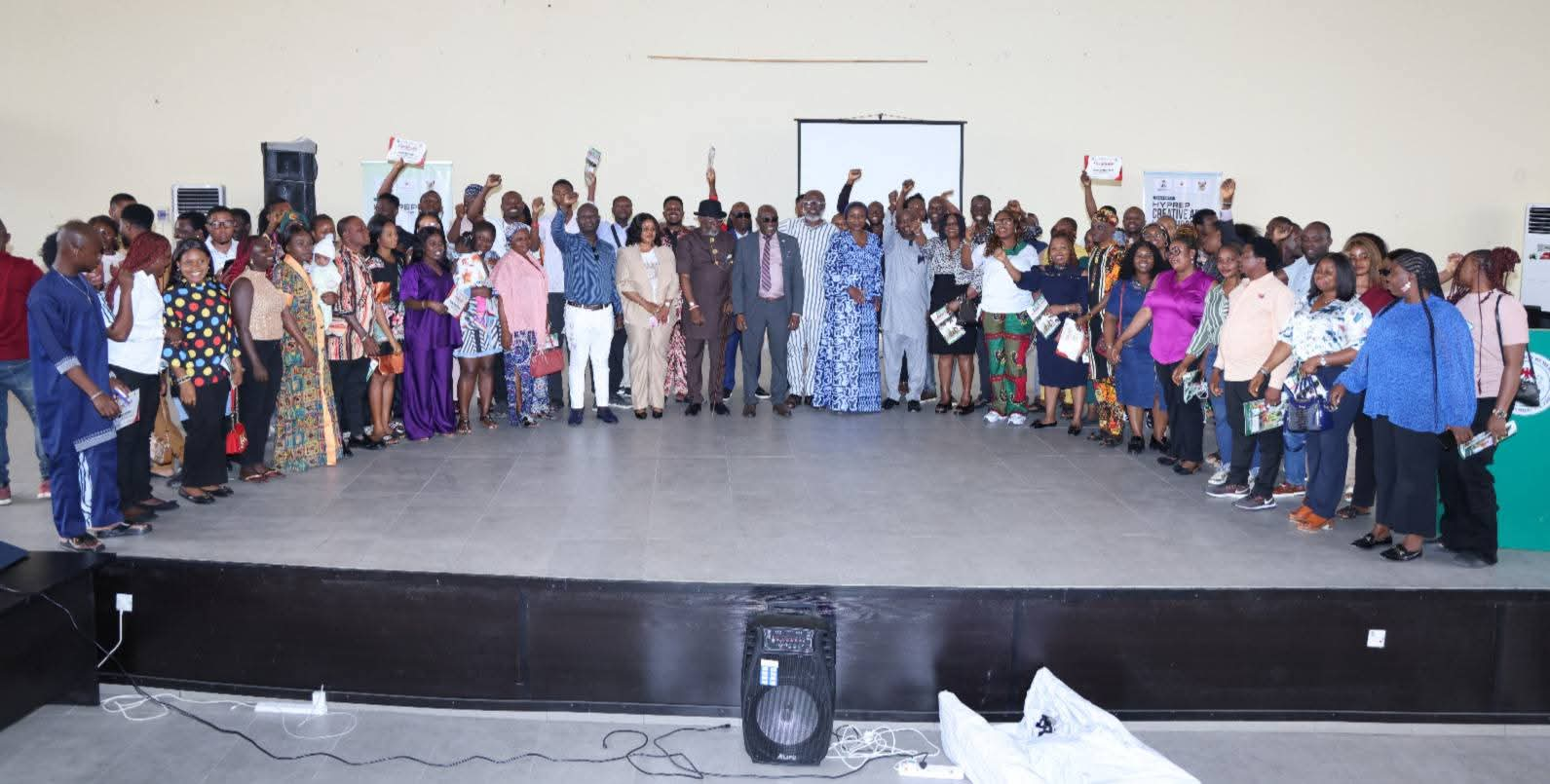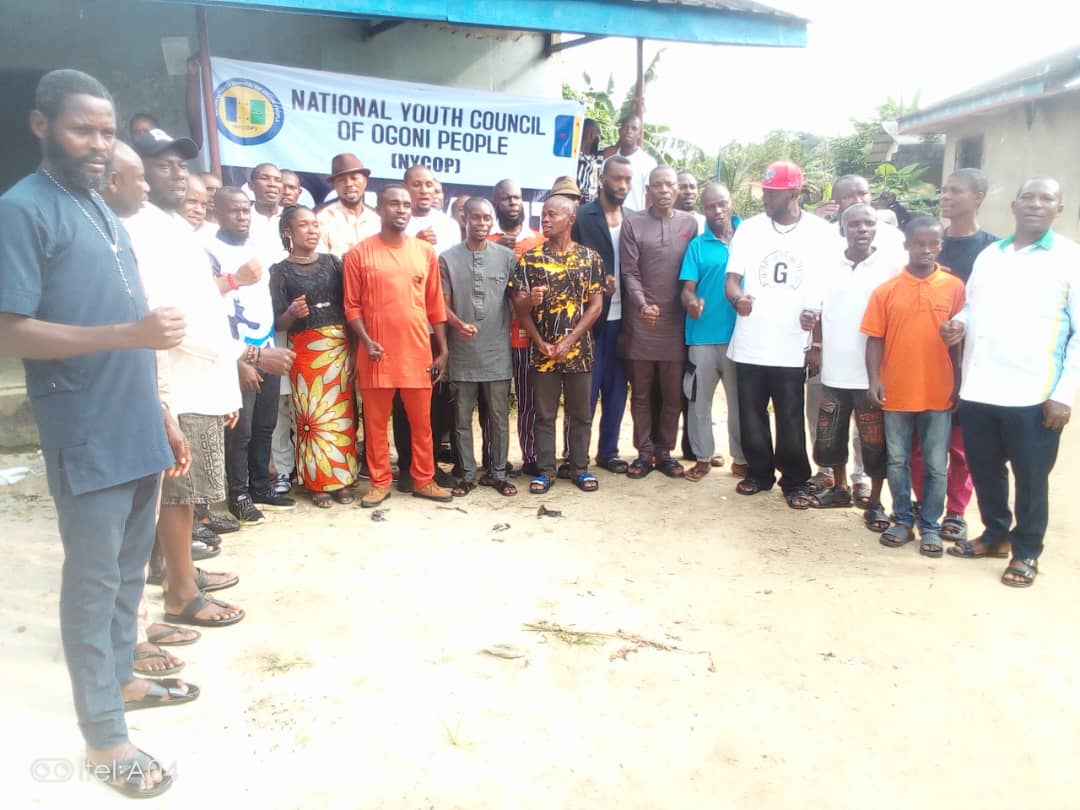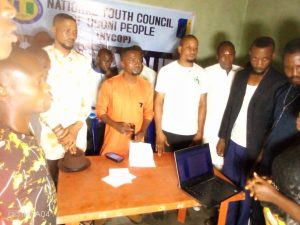Nation
UNICEF, WHO Want Imo To Scale Up Breast Feeding Programmes
The United Nations Children’s Fund (UNICEF) and the World Health Organisation (WHO) have urged the Imo State Government to scale up breastfeeding programmes in the State.
This is contained in a statement by UNICEF’s Head of Enugu Field Office, Mr Ibrahim Conteh, in Owerri last Saturday to commemorate the World Breastfeeding Week.
The 2022 World Breastfeeding Week has the theme: “Step up for Breastfeeding: Educate and Support.’
The week is officially celebrated from August 1 to 7 annually since 1992, to generate public awareness and support for breastfeeding.
According to Conteh, the exclusive breastfeeding rate in Nigeria is 29 per cent, an indication that over 70 per cent of infants in the country are denied the benefits of breast milk in their formative years.
“During emergencies, including those in Afghanistan, Yemen, Ukraine, the Horn of Africa, and the Sahel, breastfeeding guarantees a safe, nutritious and accessible food source for babies and young children.
“It offers a powerful line of defence against diseases and all forms of child malnutrition, including waste, and acts as a baby’s first vaccine, protecting them from common childhood illnesses,”he said.
Conteh, however, noted that only nine per cent of organisations had a workplace breastfeeding policy, indicating that working mothers lacked the enabling environment to optimally breastfeed their babies.
He called on governments to allocate increased resources to protect, promote and support breastfeeding policies and programmes, especially for the most vulnerable families living in emergency settings.
“Protecting and supporting breastfeeding is more important than ever, not just for protecting our planet as the ultimate natural, sustainable, first food system, but also for the survival, growth and development of millions of infants.
“The emotional distress, physical exhaustion, lack of space and poor sanitation experienced by mothers in emergency settings mean that many babies are missing out on the benefits of breastfeeding to help them survive.
“Fewer than half of all newborn babies are breastfed in the first hour of life, leaving them more vulnerable todisease and death,” he said.
Conteh said only 44 per cent of infants were exclusively breastfed in the first six months of life, short of the World Health Assembly target of 50 per cent by 2025.
“The results are high stunting rates of 37 per cent of children under five, of which 21 per cent are severe, and wasting among children under five years of age ( seven per cent). They continue to present severe consequences for the child,” he said.
He urged governments, donors, civil society and the private sector to step up efforts to prioritise investing in breastfeeding support policies and programmes, especially in fragile and food insecure contexts.
He also urged government to equip health and nutrition workers with facilities in the communities with the requisite skills to provide quality counselling and practical support to mothers to successfully breastfeed.
He further called for the protection of caregivers and health care workers from the unethical marketing influence of the formula industry by fully adopting and implementing the International Code of Marketing of Breast Milk Substitutes, including in humanitarian settings.
Nation
Accolades, Fanfare As Ogbakor Ikwerre President General Celebrates 80th Birthday

The President General of Ogbakor Ikwerre Cultural Organisation Worldwide and the Mgboh XIII of the Mgboh Royal Family of Emohua Kingdom in Emohua Local Government Area of Rivers State, Eze (Barrister) Godspower Onuekwa, penultimate Friday celebrated his 80th birthday with pomp, pageantry and fanfare.
The celebration, which commenced with a symposium organised in his honour at Rivers State University on Thursday, August 21,2025, got to a resounding climax on Friday at Suntai Event Centre in Port Harcourt, where people from all walks of life, including business associates, friends, well-wishers, relatives, community folks, traditional rulers, and admirers, gathered to pay glowing tributes to the celebrant.
Before then, a well attended thanksgiving service was held that same Friday at Emmanuel Anglican Church, Okoro-Nu-Odo, to honour him and return gratitude to God Almighty for the fruitful and eventful life and accomplishments of the Emohua leader and icon.
The service which was officiated by Rt Rev Wisdom Budu Ihunwo, Bishop of Niger Delta North had other renowned and respected clerics like Most Rev(Dr) Blessing Enyindah, Dean, Church of Nigeria (Anglican Communion); Rt Rev(Dr) Emmanuel Oko-Jaja, Bishop, Diocese of Niger Delta; Rt Rev Innocent Ordu, Bishop, Diocese of Evo; and Ven Solomon Eze Nelson, Archdeacon, Okoro-Nu-Odo; among others lined up as officiating ministers.
The service lived up to its billing, as it featured powerful and soul-lifting praise and worship; point-blank prayers; and beautiful renditions, which electrified the entire atmosphere, essentially packaged to thank God for the life of the celebrant.
However, the crowning moment actually came when the who is who, the crème de la crème of the society, thronged the terraces and fabulously decorated expansive hall of Suntai Event Centre, to celebrate Eze Onuekwa, amid accolades, aplomb and panache, wining and dining, and clinking of glasses with him and all.
The chairman of the colourful ceremony, Chief Evans Woherem, who was represented by Eze(Prof) Christian Akani of the prestigious Ignatius Ajuru University of Education, praised the celebrant for his youthfulness in spite of clocking 80 years, generosity, humility, humaneness and selfless services to the Ikwerre ethnic nationality, the Niger Delta and Nigeria, and called on all and sundry to emulate his good legacies and simple disposition towards life and existence.
Goodwill messages also poured in in torrents to underscore and salute the doggedness, resilience, astuteness and uniqueness of the endearing life of the celebrant, with Prof Emenike Wami, the Ochia Ohna Ikwerre(XIV), taking the lead.
Prof Priye Iyalla, the wife of late renowned writer, novelist and playwright, Dr Elechi Amadi, held the audience spellbound as she masterfully reeled out the profile of the celebrant, amid intermittent applause from the crowd.
The Tiv Community from Benue State, resident in Rivers State, were not left out, as they honoured and decorated Eze Onuekwa in their complete traditional regalia.
Cultural displays from Baptist Church, Rumuowhor; ADNA Wogbuji Dancing Group, Egbeda; Tiv Dancing Group; and Promoter Eze and Rumu-Mgboh Emohua Wrestling Group, equally added colour and grace to the occasion, with the celebrant and his wife, Dame Ann Onuekwa, joining them to wriggle their waists and bodies in ecstasy.
In his response, the highly elated celebrant, Eze Onuekwa thanked all those gathered to celebrate with him, saying, celebrations would never cease in their homes, and attributed everything he represents in life, including his modest accomplishments to God.
Eze Onuekwa, while addressing newsmen, harped on the need for hard work among the youths and members of Ogbakor Ikwerre Cultural Organisation Worldwide, as a way of sustaining and giving meaning to the motto of the organisation, which he noted is anchored on peace, unity and progress.
He specially thanked God for sustaining his life, and for making everything possible for him and his family, saying, he was joyous that he has today become an octogenarian and elder statesman in Rivers State.
His son and medical practitioner, Dr Samuel Chizia Onuekwa expressed delight that people from far and near had come together to celebrate the father, whom he described as a role model and great inspirator.
He said it was a good thing that the children were celebrating their father when he is alive, stressing that the last time Eze Onuekwa was celebrated in such magnitude was 20 years ago, during his 60th birthday celebration, and prayed God to grant him many more years in good health.
Among dignitaries who graced the event were Senator Andrew Uchendu; Chief Sampson Agbaru; Prof Emenike Wami; Dr Peter Didia; Eze(Prof) Samuel Ugo Onyeka; and a host of others. Justice Iche Ndu(rtd); and C O Kattey were among personalities that attended the thanksgiving service, while the Vice Chancellor of Rivers State University, Prof Isaac Zeb-Obipi led the academics who graced the symposium, alongside Eze G A O Omodu.
Nation
Ensure That Ogoni Is Heard In The Right Way, HYPREP Urges Creative Arts Trainees

As the 100 Ogoni youths trained by the Hydrocarbon Pollution Remediation Project (HYPREP) in Creative Arts close out their training on Tuesday at the Theatre Arts Department, University of Port Harcourt, the Project Coordinator of HYPREP, Prof Nenibarini Zabbey, has urged the beneficiaries to use the skills acquired to ensure that the Ogoni stories are told and heard in the right way.
The trainees, who had completed a four- month training in script writing, film production and make-up are beneficiaries of the HYPREP sustainable livelihood programme, aimed at providing high demand skills to Ogoni youths in the lucrative creative arts and entertainment industry.
Zabbey described the Creative Arts training as well as other programmes and interventions as HYPREP’s strategic sustained effort to create alternative sources of livelihood.
”Targeted capacity building for Ogoni youths and women remains a central strategy in HYPREP’s livelihood restoration and improvement efforts. Our goal is to reach every part of the Ogoni community and ensure that no group or talent pool is left behind. This training is a deliberate step to empower young people who aspire to make their mark in the creative and entertainment industry”, he said.
While commending the trainees for producing four short films within the training period, one of which was premiered at the ceremony-Dirty Festival, the Project Coordinator noted that the training would serve as a springboard into the industry, and enable them earn a living, become entrepreneurs, and open new doors of opportunities for themselves and their communities. The three other movies are Open Pain, Bomu and Green War.
He enjoined them to utilise their skills and platforms to promote civic responsibility, peace, and environmental sustainability, urging them to ensure that Ogoni is heard in the right way, speak for HYPREP and highlight the progress being made in implementing the recommendations of the UNEP Report.
Other speakers at the event, including the Director of Technical Services of HYPREP, Prof. Damian-Paul Aguiyi; Dr Ovunda Ihunwo, Head of the Theatre Arts Department of the University of Port Harcourt; Chief Douglas Experience, the Project Coordinator of Halibiz Consult Limited; and Mrs Josephine Nzidee, Head, Sustainable Livelihood of HYPREP, all applauded HYPREP for the training, and charged the trainees to maximise the opportunity.
The trainees were later presented certificates of participation.
Visibly elated Ms Lebee Tornwe, one of the beneficiaries, thanked HYPREP and the Project Coordinator for offering the trainees the rare opportunity to acquire skills in the creative arts and entertainment industry, and expressed delight that Dr Ihunwo and Halibiz Consult Limited gave their all in grooming them.
With the wrapping up of the Creative Arts training(100), HYPREP has trained 230 Ogoni youths in high demand skill sets ,viz; seafaring(100); and aviation (30). The Project will this year, commence training in other skill areas, including Mechatronic, Aviation, Full-Stack Development, Commercial Diving, Underwater Welding and Geographic Information Systems (GIS).
Still in the offing is the training for Ogoni Persons Living with Disabilities in five skill sets- fish farming; basic computer skills; photography; fashion and design; and shoemaking in line with their Needs Assessment and HYPREP’s policy of inclusivity.
Nation
NYCOP Urges Stakeholders To Develop, Empower Ogoni Youths

The National Youth Council of Ogoni People (NYCOP) had called on stakeholders to work collaboratively towards the development and empowerment of Ogoni youths.
NYCOP made the call in a communique issue over the weekend after an emergency Congress in Port Harcourt and signed by its President, Comrade Raymond Nwibani Marcus.

In the communique, NYCOP endorsed President Bola Tinubu’s appointments of the Governing Council and Board of Trustees (BOT) members of the Hydrocarbon Pollution Remediation Project (HYPREP), particularly Rt. Hon. Emmanuel Nwika Deeyah as Chairman of HYPREP’s BOT.
It respectfully appealed to the President to consider appointing a representative from the Movement for the Survival of the Ogoni People (MOSOP) under the leadership of Engr. Olu Andah Wai-Ogosu, being the pioneering social vehicle for Ogoni advocacy since the inception of the Ogoni struggle, adding that it would significantly contribute to the decision-making process.
The body commended the overall management of HYPREP and urges the President to continue funding the HYPREP project.
NYCOP furthermore recommended considering the conversion of HYPREP from a project to a full-fledged agency of the Federal Government of Nigeria.
The communique also stated that NYCOP thanked President Tinubu for establishing the Federal University of Environmental Technology, and for appointing key staff, forming a dialogue committee, and initiating infrastructural projects like the Eleme axis of the East-West Road and the Bonny-Bodo Road, significantly enhancing regional connectivity and economic prospects.
In solidarity with the Renewed Hope Agenda, the endorsed President Tinubu’s second-term bid, saying it believes his leadership embodies the aspirations of the Ogoni people and Nigerians at large.
“After thorough consideration of the Disciplinary Committee’s report, NYCOP resolves:
” To indefinitely suspend Comrade Nade Nade Burale from his position as Secretary General due to misconduct.
“To declare Comrade Saviour Imeabe persona non grata on Ogoni youth issues, given his actions’ potential to instigate crisis in Ogoni and beyond” the communique stated.
NYCOP in his resolution issued a 7-day ultimatum to former HYPREP BOT Chairman Mike Nwialeghi to explain the $100 million HYPREP fund investment, warning of potential litigation.
NYCOP reaffirmed its commitment to safeguarding Ogoni youth interests and preventing personal aggrandizement.
According to the communique the resolutions demonstrate NYCOP’s efforts to promote the collective welfare and advancement of Ogoni youth.
“We will no longer tolerate any individual or group using the name or issues of Ogoni youth for personal aggrandizement.
” Our mandate is clear: to promote the collective welfare and advancement of Ogoni youth” the communique said.
NYCOP passes a vote of confidence in Hon. Emmanuel Nwika Deeyah, acknowledging his impeccable credentials and credibility to lead the BOT of HYPREP effectively.
Kiadum Edookor
-

 Maritime3 days ago
Maritime3 days agoCustoms, MAN Consent On 4% FoB Exemptions, Manufacturing Support Measures
-

 Rivers3 days ago
Rivers3 days agoIAUE Emerges Winner Of National Campus Debate, 2025
-

 News3 days ago
News3 days agoFUBARA: UNDERUTILISED SEAPORTS DENYING RIVERS ECONOMIC PROSPERITY ……..Hosts NPA Board, Mgt On Courtesy Visit
-
Niger Delta1 day ago
No Hiding Place For Erring Motorists In Delta – FRSC
-

 Opinion3 days ago
Opinion3 days ago94 Years From A Turning Point
-

 Education3 days ago
Education3 days agoDon Advocates Equal Opportunity For Citizens
-
News1 day ago
Tinubu urges security agencies to apprehend killers of Arise TV Staff ?
-

 Politics3 days ago
Politics3 days agoAnambra Guber: ADC Candidate Urges INEC To Tackle Vote Buying

